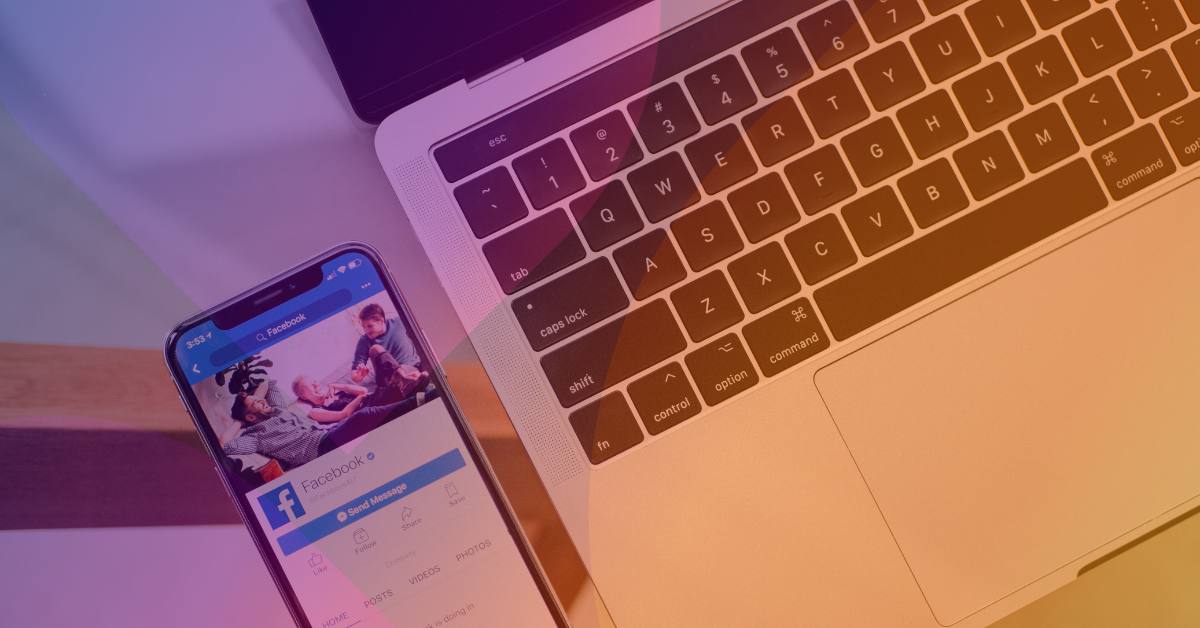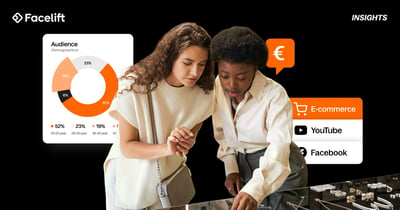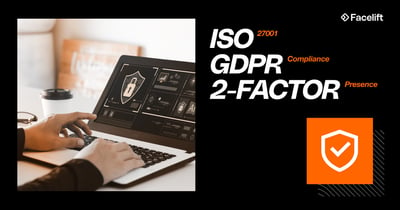Visual content is becoming increasingly important in social media. Images and videos are easy to consume, and the brain processes them better than text. Posts with visual content stay with users longer and are easier to understand. This leads to higher engagement and conversion rates, which will positively impact the performance of your social media account.
To deliver good visual content, it is essential to adhere to the image dimensions specified by each social media platform. Cropped, pixelated, or distorted images do not necessarily invite the viewer to spend more time with the idea and quickly look unprofessional.
We took a closer look at the image sizes of the most popular social networks: Facebook, Instagram, X, TikTok, Pinterest, YouTube, LinkedIn, Google, and WhatsApp. Which are of particular interest to you?
Social media image sizes overview
Using different formats on different social media platforms can be challenging, as each network has its requirements and size differences for images and videos. Here are some of the issues that can arise when adapting to different formats:
- Image sizes: Each platform has different recommended image sizes for profile images, banner images, thumbnails, and post images. Meeting these requirements can be time-consuming, as images may need to be cropped or rescaled to display correctly on any network.
- Aspect ratios: Image aspect ratios vary from platform to platform. For example, Instagram prefers square formats, while Facebook and Twitter use rectangular formats. This means your content will need to be redesigned or cropped to fit.
- Video resolutions: Videos on other platforms have different resolution and aspect ratio requirements. For example, YouTube prefers 16:9, while TikTok uses 9:16 vertical videos.
- Platform-specific features: Each platform offers unique features, such as Stories on Instagram or Reels on TikTok. Creating and customizing content for these specific features requires extra work and creativity.
If you rely heavily on short-form video formats on social media, you can check out our infographic, which shows a beneficial overview.
Facebook image sizes
Facebook is the largest social network in the world, with approximately 2 billion daily users. Around 4.75 billion pieces of content are shared every day. In addition to the Facebook image sizes mentioned above, images must be uploaded in PNG format to avoid unreadable font shrinkage in JPEG format. Maintaining the image-to-text ratio is essential so that Facebook displays the image correctly. Facebook provides a versatile platform for sharing posts, from text to images, videos, and links. Choosing the correct post type and presenting the content can increase user visibility and engagement. Here's an overview of the different image sizes on Facebook.
- Facebook profile image: 180 x 180 pixels
- Facebook Company Page cover image: 820 x 310 pixels or 640 x 360 pixels.
- Facebook Stories: 1080 x 1920 pixels
- Facebook Post sizes:
- Feed image: 1200 x 1500 pixels
- Shared image: 1200 x 630 pixels
- Shared link: 1200 x 627 pixels
- Event image: 1920 x 1080 pixels
- Event cover image: 1200 x 628 pixels
- Highlighted image: 1200 x 717 pixels
- Panoramic & 360° photo: min. 30,000 pixels and max. 135,000
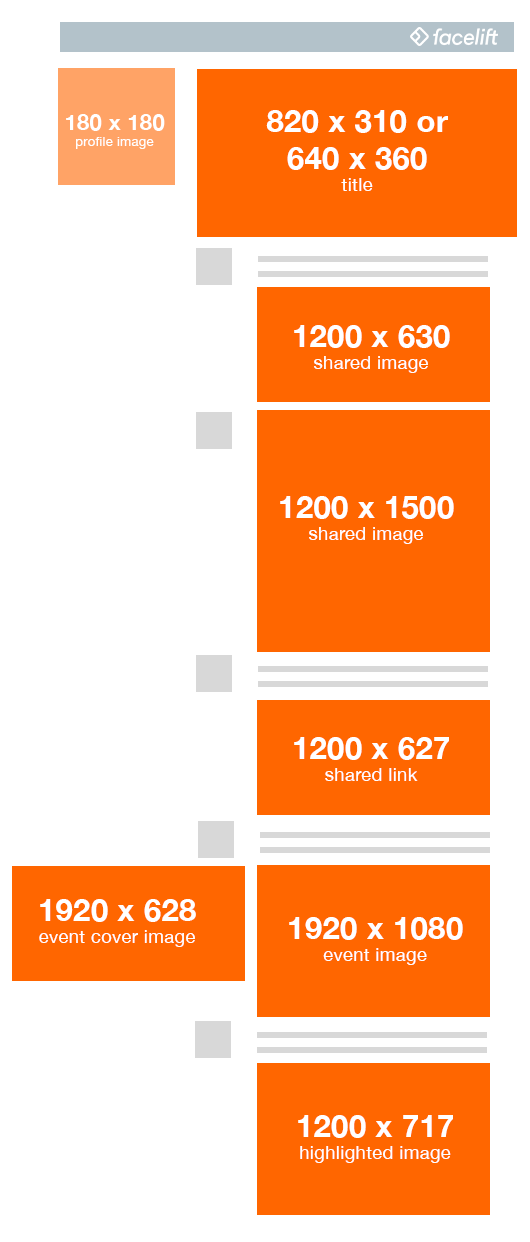
Instagram image sizes
Instagram supports various formats that allow users to share diverse and creative content. The platform offers options for square and vertical images and videos for feeds, stories, and reels. This variety of formats allows users to customize their content to suit their specific needs and audience best and shape the visual presentation of their profile on Instagram. Choosing the proper Instagram format is critical to capturing users' attention and encouraging interaction. Here is an overview of the most essential Instagram format specifications:
- Instagram profile picture size: 110 x 110 pixels (square image, displayed round).
- Instagram photo post:
- square: 1080 x 1080 pixels, 1:1 aspect ratio
- Landscape: 1080 x 608 pixels, aspect ratio: 16:9
- portrait: 1080 x 1350 pixels, aspect ratio: 4:5.
- Instagram Stories: 1080 x 1920 pixels, aspect ratio: 9:16
- Instagram Reels: Video: 1080 x 1920 pixels, aspect ratio: 9:16
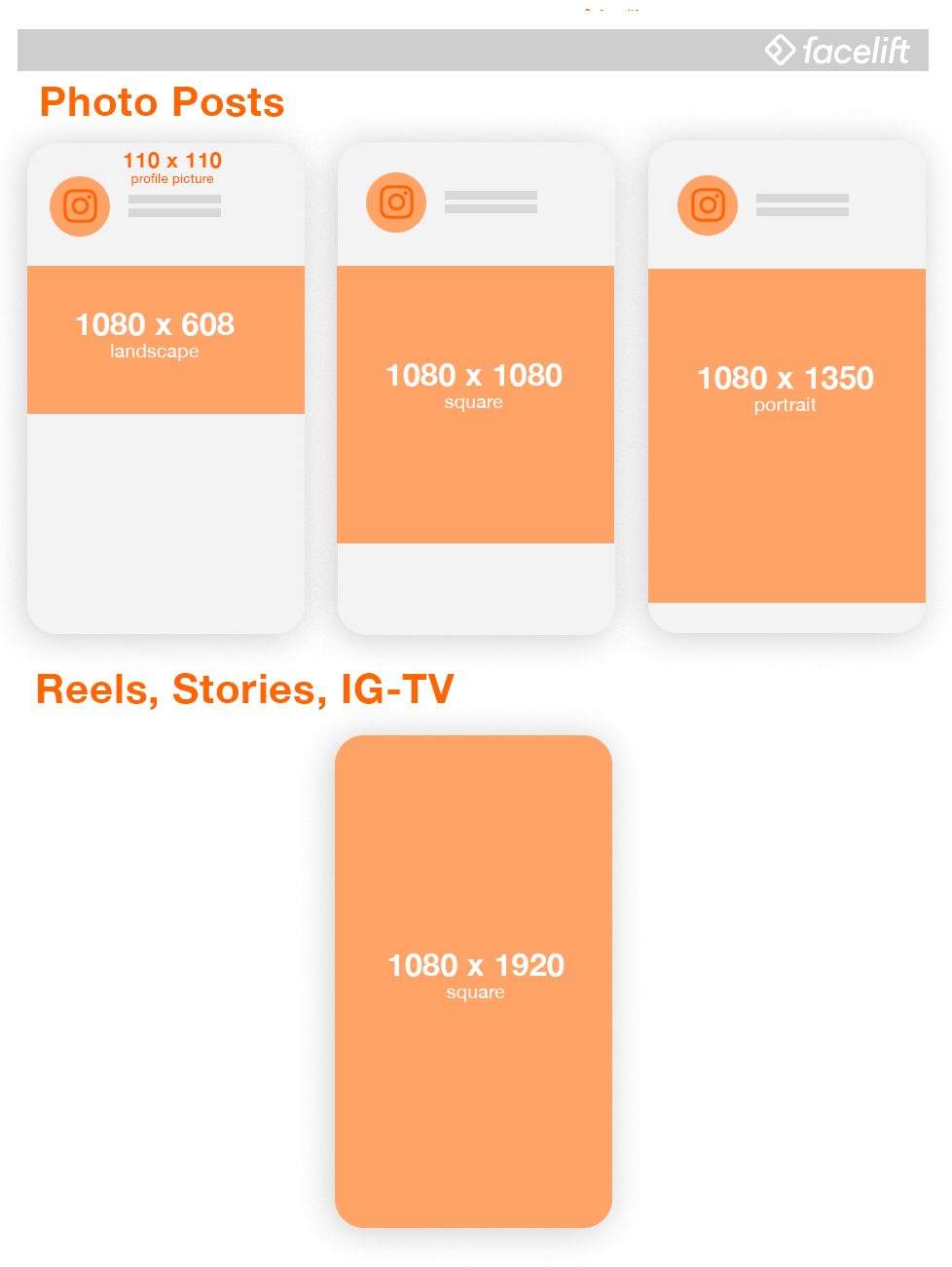
X (Twitter) image sizes
Fast content, hashtags, and short messages characterize the micro-blogging platform Twitter. Pictures, videos, and GIFs are popular on Twitter, but you should pay attention to the 280-character messages that draw attention to your account daily with short tweets. Here is an overview of Twitter's image formats:
- Twitter profile photo: 400 x 400 pixels
- Twitter cover image: 1500 x 500 pixels
- In-stream image Twitter: 1200 x 675 pixels (min. 440 x 220 pixels) (also 2:1 and 1:1 on desktop, 2:1, 3:4 and 16:9 on mobile)
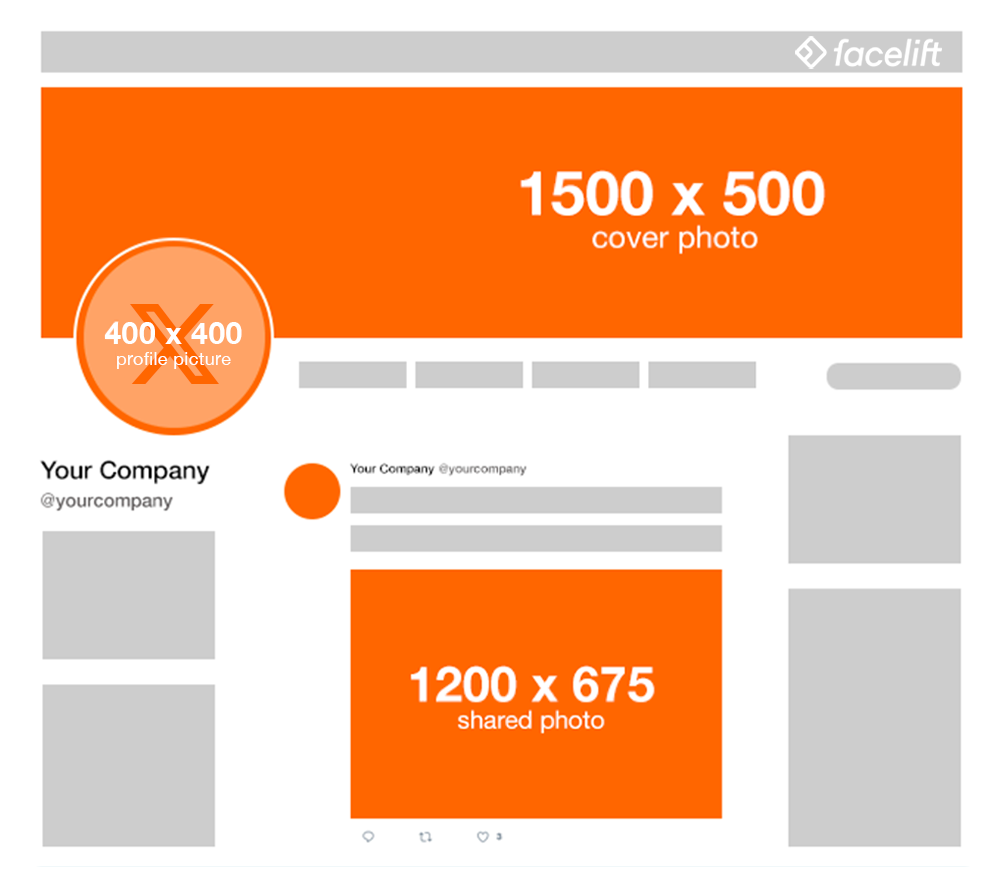
TikTok image sizes
TikTok is a popular platform for sharing short videos and requires specific image sizes to ensure your content is displayed optimally.
- TikTok profile picture (pfp): 200 x 200 pixels (minimum 20 x 20).
- TikTok video size: 1080 x 1920 pixels (the ideal aspect ratio for TikTok videos is 1:1 or 9:16).
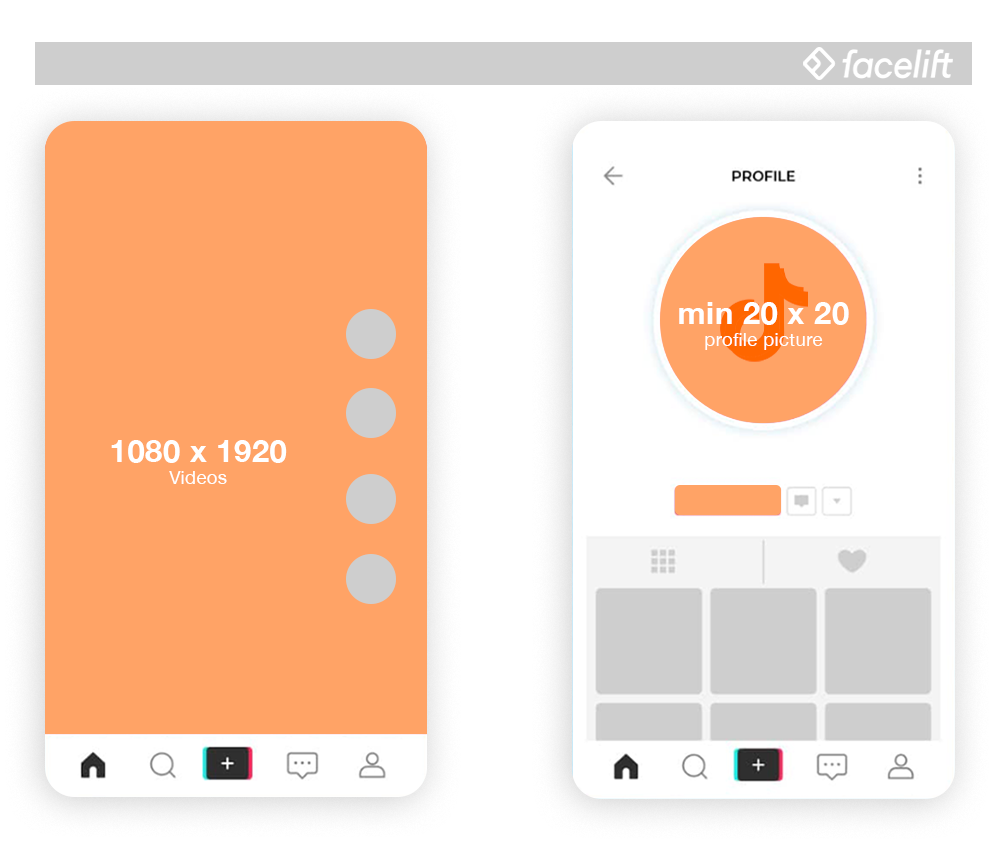
Pinterest image sizes
The online pinboard Pinterest is mainly used to find inspiration for future purchases, craft instructions, new products, and recipes. The focus is on content, with images and videos playing a vital role. A unique feature of Pinterest is the longevity of pins. The half-life of a pin is about 3.5 months, while the half-life of an Instagram post is only 1 hour.
- Pinterest profile image: 165 x 165 pixels
- Cover image: 1440 x 810 pixels
- Board cover: 600 x 600 pixels
- Pin image: 1000 x 1500 pixels
- Story Pins: 1,080 x 1,920 pixels

YouTube image sizes
The video platform YouTube has become the largest search engine after Google. Videos are becoming increasingly popular as social media content because they are easy to consume and do not require full attention. Content that serves as entertainment or provides help on a specific topic is especially in demand.
- Youtube cover image: 2560 x 1440 pixels
- Youtube profile photo: 800 x 800 pixels
- Youtube thumbnail: 1280 x 720 pixels
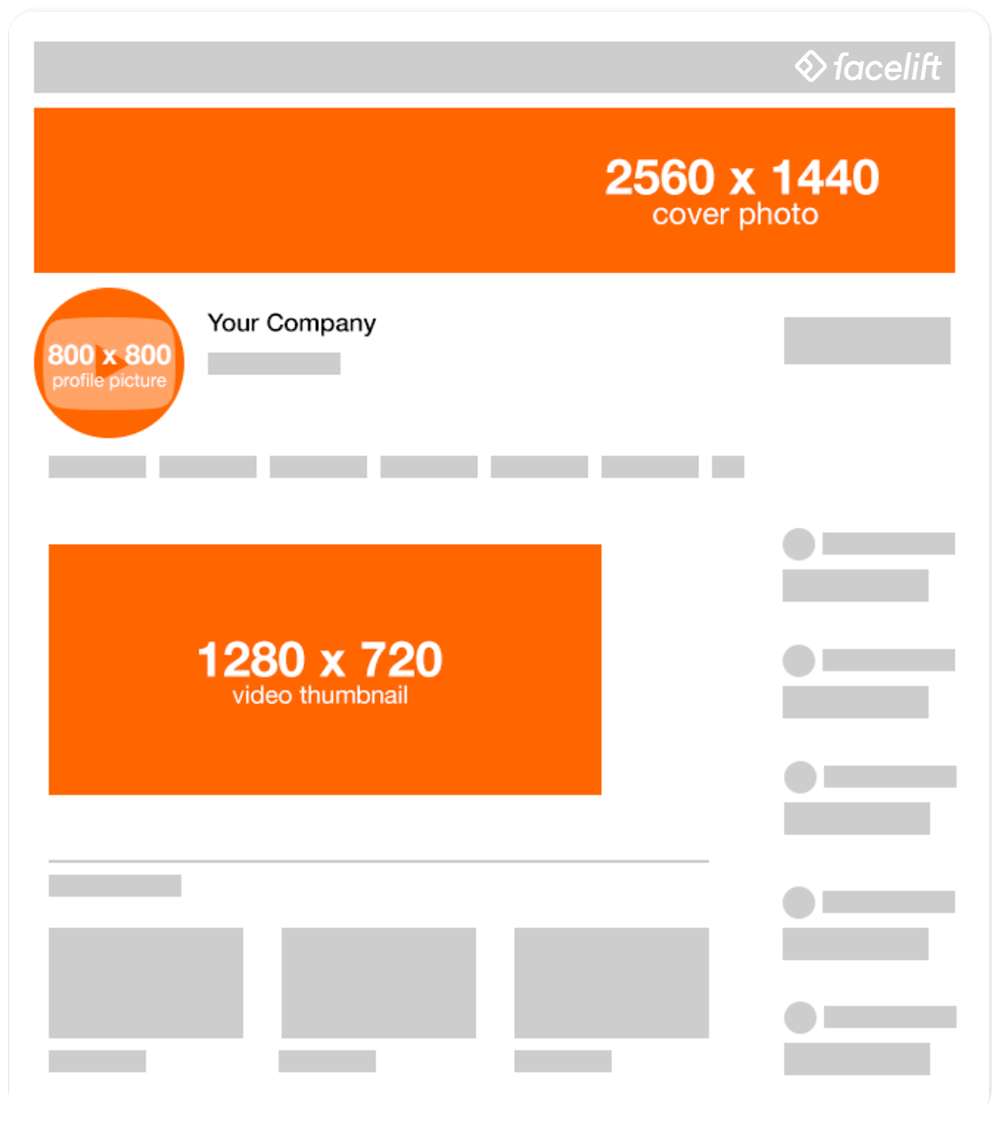
LinkedIn image sizes
LinkedIn is primarily a platform for networking with colleagues and business contacts. However, it is also possible to share posts with videos, images, and links, recommend them to your network, create events, and recruit participants inside for them.
- LinkedIn profile image size: 300 x 300 pixels
- Company/brand cover image: 1536 x 768 pixels
- Feed image: 1200 x 1200 pixels (4:5 also possible)
- Video Post: 1920 x 1920 pixels
- Story: 1080 x 1920 pixels
- Title Image for articles: 1280 x 720 pixels
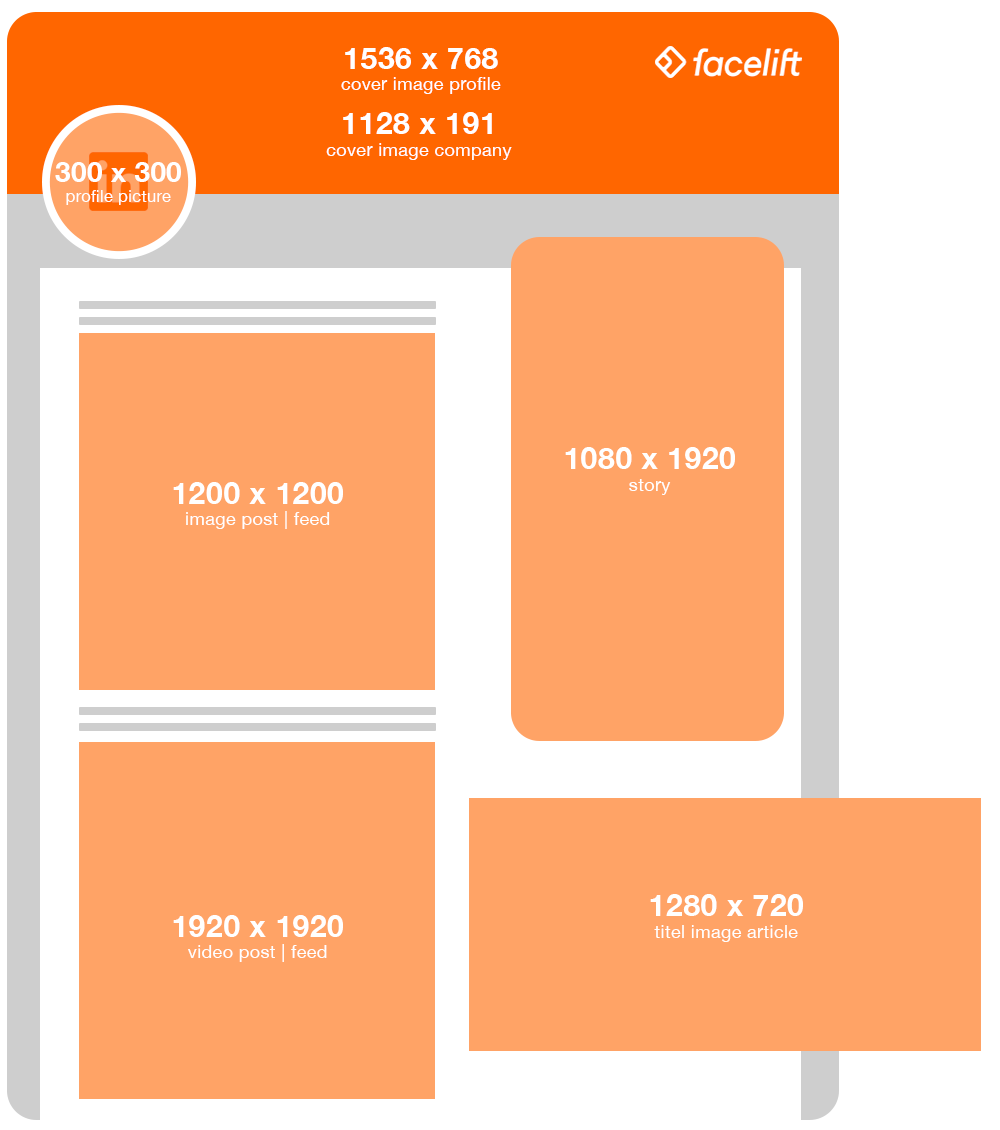
Xing image sizes
XING is a professional social network recommending specific image sizes for various platform elements. Here are the recommended image sizes for XING:
- XING profile picture: 1024 x 1024 pixels
- XING posts: 720 x 450 pixels
- XING cover photo: 1280 x 624 pixels
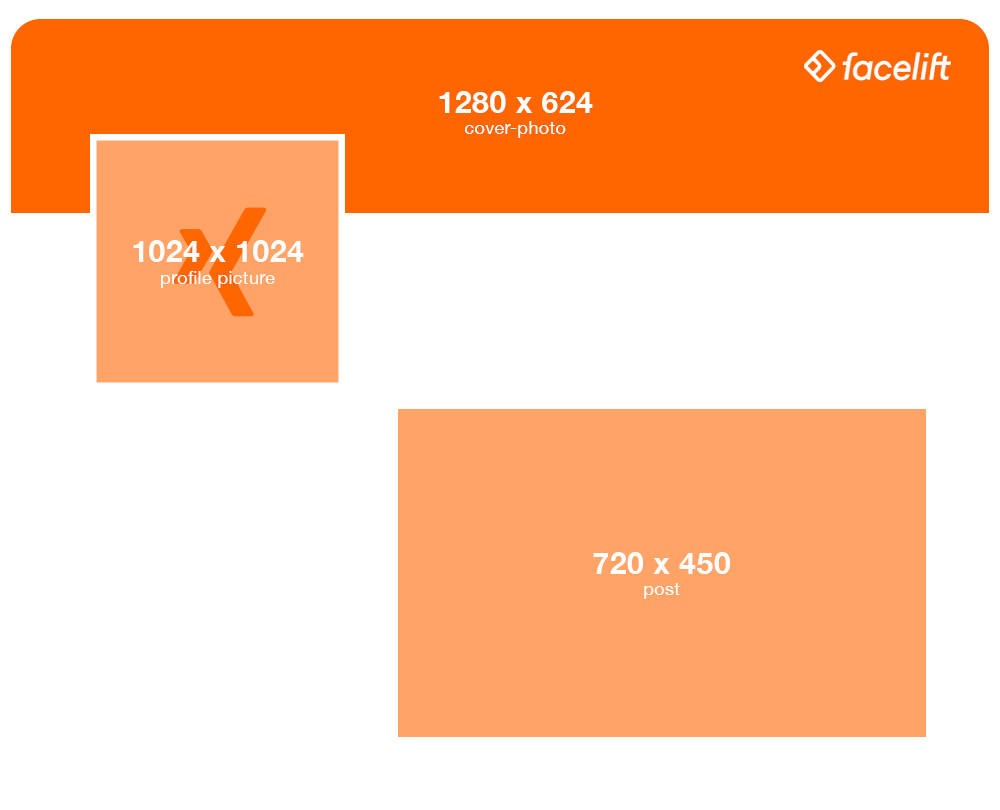
WhatsApp Business image sizes
WhatsApp for Business allows businesses to communicate directly with their customers, and the correct image sizes play an essential role in creating an engaging and effective business presence on the platform.
- WhatsApp profile picture: 1200 x 1200 pixels
- Status image: 1080 x 1920 pixels
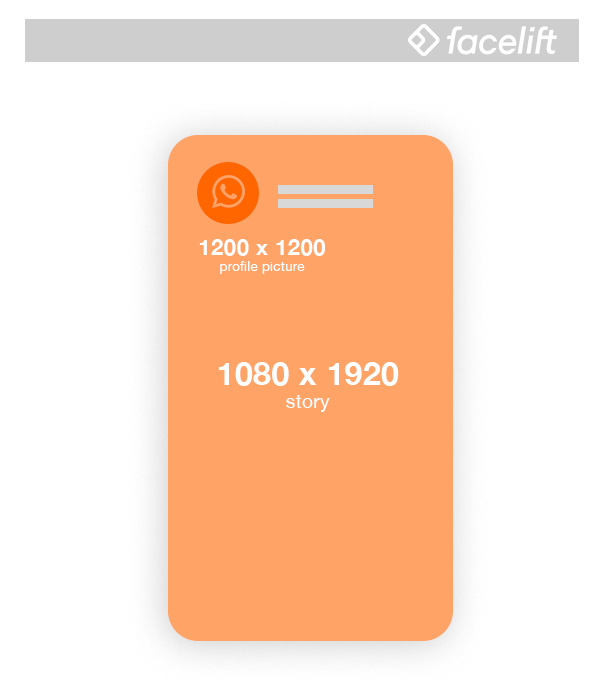
Google Business image sizes
Google Business profile image sizes play a crucial role in making a solid first impression on potential customers.
- Profile image: 1024 x 1024 pixels
- Cover image: 1024 x 576 pixels
- Post image: 720 x 720 pixels
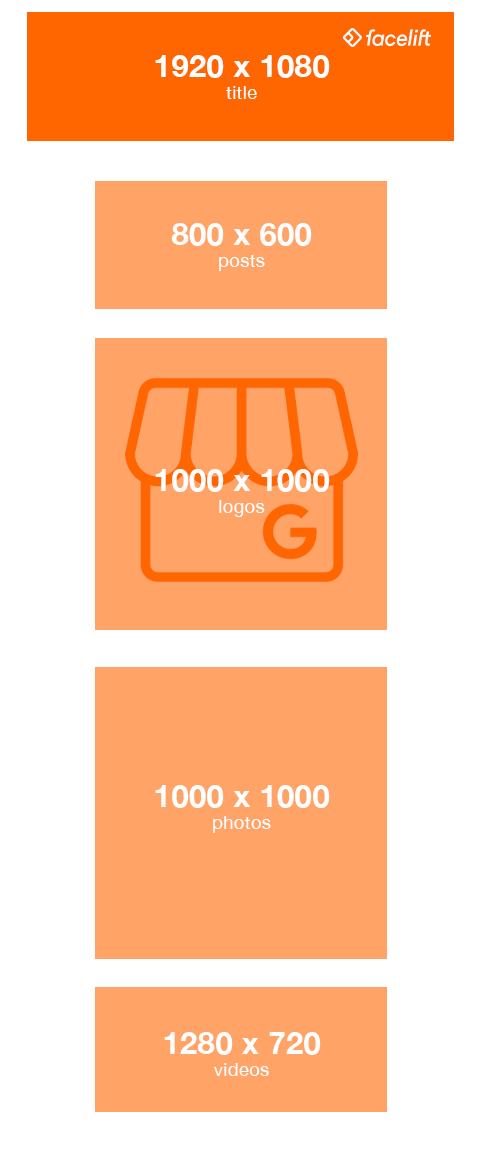
More Social Media Stories, tips, and news
Want to become a master of Stories? We have the perfect guide for you: In our Social Media Story and Vertical Video Guide, you'll find even more tips for story success, as well as insights into the latest numbers, data, and new features of Social Media Stories.

